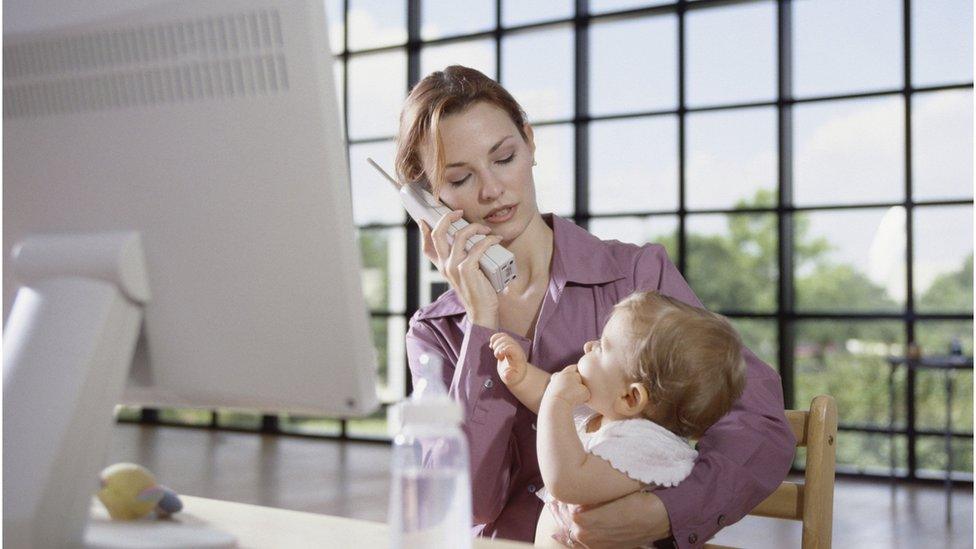#MeToo movement takes hold in South Korea
- Published
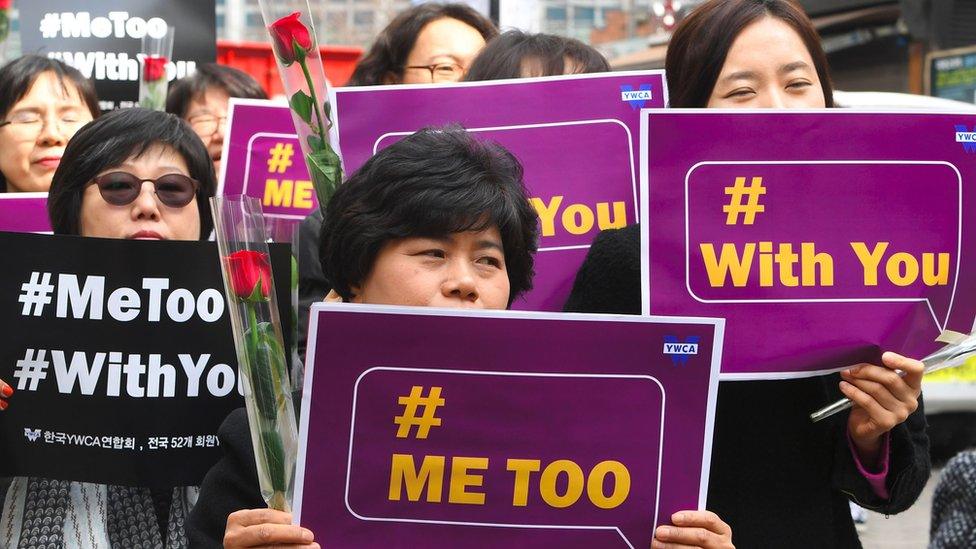
Hundreds of South Korean women have spoken out against sexual abuse in recent weeks
Young women in South Korea are fighting for a new future. The #MeToo movement which has highlighted sexual harassment and abuse around the world has taken a surprising hold in this socially conservative country.
Allegations which would once have been brushed aside have brought down some of the most prominent men in power, and women are coming forward to confront social norms that have silenced them for decades.
But can it last in a culture which often brands feminism a dirty word?
Just last month singer Son Naeun of the popular group Apink was forced to defend a picture on Instagram of her holding a phone case which simply read "Girls can do anything." She was accused of "promoting feminism" and deleted her post.
And even after months of abuse revelations, those who speak up risk derision and suspicion.
The difference in 2018 is that many South Korean women appear willing to take that risk.
It took the first brave steps of a few to break down barriers.
The turning point came in January in a televised interview with the public prosecutor, Seo Ji-hyeon. She accused a former South Korean ministry of justice official of groping her during a funeral in 2010. He says he doesn't remember the incident.
Her public revelation became a rallying cry. Prosecutors are the elite of South Korean society. Women started to think, if it can happen to her, and she can speak up, well why can't I?
Within the past few weeks, hundreds have come forward with their own cries of #MeToo.
Lee Eun-eui: "I realised it was a fight that I had to do"
The political world was shocked when rising star, and once presidential hopeful, Governor Ahn Hee-jung was accused of raping his secretary. He has resigned.
Poems by Ko Un, once tipped for the Nobel Prize for Literature, will be erased from South Korean textbooks after he was accused of sexually harassing female literary hopefuls.
And the director Kim Ki-duk, a Golden Lion winner at the Venice Film Festival, might not be able to release his new film as actresses have come forward with allegations of attempted rape.
These are high profile cases. But the problem appears to be systemic.
Consider the major gender pay gap alone.
Women in South Korea earn only 63% of men's salaries - one of the highest pay gaps among 29 developed nations, external. The Economist also ranks South Korea as the worst developed nation in which to be a working woman, in its glass ceiling index, external.
And there are few women in key positions of power in the workplace, as they make up only 2% of boardrooms, according to Forbes.
This is part of the problem, as the JoongAng Ilbo said in an editorial describing the workplace culture in South Korea: "Those who seize power get to believe that they can do whatever they want to."
In quiet dinner conversations, my friends have told me about being young employees at big companies where you are encouraged to go for drinks after work to network and help your chances of promotion.
Every single one of them had a story about one of their superiors putting a hand on their knee, up their skirt, asking them if they'd like to stay in a hotel for the night. One even told me her boss took a picture up her skirt. The stories went on.
Think that's just a few ladies talking over dinner? Think again.
At a marathon #MeToo protest in the centre of Seoul, 193 women stood at the microphone and told their experiences of sexual harassment for 2018 minutes non-stop. The AFP reporter, Hawon Jung, documented the event on Twitter, including this plea from a victim.
Allow X content?
This article contains content provided by X. We ask for your permission before anything is loaded, as they may be using cookies and other technologies. You may want to read X’s cookie policy, external and privacy policy, external before accepting. To view this content choose ‘accept and continue’.
Allow X content?
This article contains content provided by X. We ask for your permission before anything is loaded, as they may be using cookies and other technologies. You may want to read X’s cookie policy, external and privacy policy, external before accepting. To view this content choose ‘accept and continue’.
It's worth noting that where this event took place - Gwangwhamun Plaza in Seoul - is the same place where thousands gathered for the mass candlelight demonstrations against the now-ousted president Park Geun-hye last year. South Koreans know the power of protest. They have seen it topple a president.
But can it change an entire culture?
The current administration has said it plans to extend the statute to limitations of power-based sexual abuse cases, and it has pledged to set up a process for victims to report sexual abuse anonymously.
Most women so far have been using an anonymous app called Blind to report abuse. At one point the company said there were around 500 posts a day.
However, President Moon Jae-in noted as he addressed the #MeToo movement that South Korea "cannot solve this through laws alone and we need to change our culture and attitude".
Prof Joo Hee Lee, who teaches sociology at the all-female EWHA University, agrees.
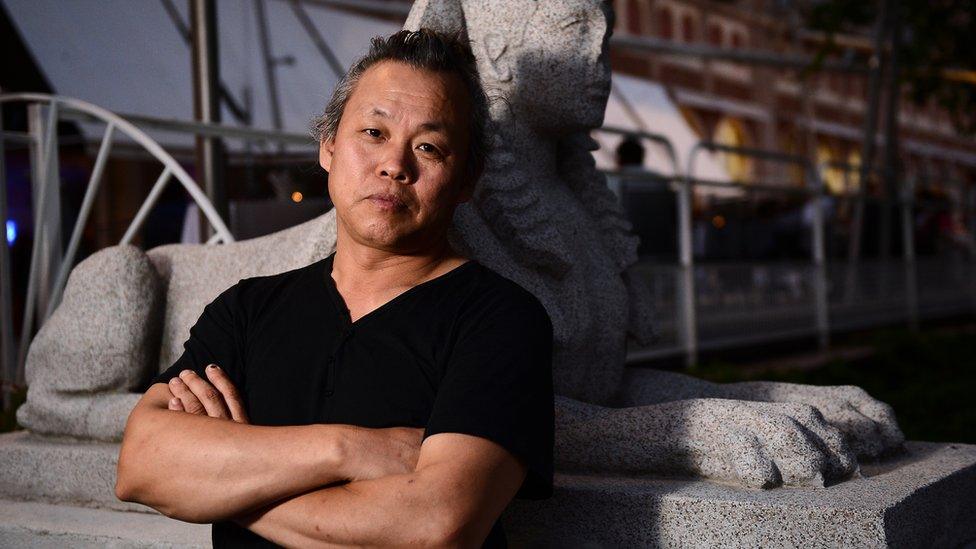
Director Kim Ki-duk is facing allegations of attempted rape from numerous actresses
"I think, most of all, the corporate culture should be changed. The South Korean corporate culture is characterised by an old boys' network - very closed relations. They've excluded women's voices and other diverse voices from management. So that must be corrected."
The legal system can also make it difficult for women's claims of abuse to be heard.
Lee Eun-eui took on the corporate giant Samsung Electro Mechanics after it failed to listen to her claims of abuse.
She reported it to human resources, only to find herself an outcast. At first she was given no work, then she was moved to a different department. She was told that no-one would be on her side.
"In the beginning I said the bigger the fight the bigger the reward," she told me. "While that is a motto I apply to all different aspects of my life, the actual lawsuit was a very lonely and difficult process.
"But after going through the hardship and when it all ended well, I realised it was a fight that I had to do."
It took four years, but a court eventually ruled in her favour. She now has a new career as a lawyer helping other women with sex abuse cases.
"I'm very happy when people who come to get advice from me tell me that I am their role model. I think then that it was really worth fighting for."
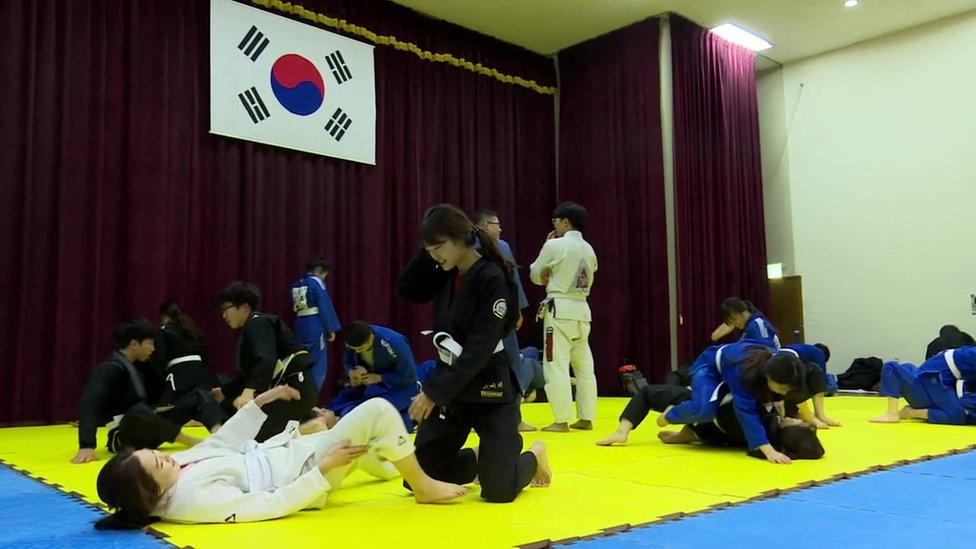
Young women were keen to discuss the #MeToo movement at this jiu-jitsu class
There are other signs of change. Members of the younger generation are more aware of their rights and are keen to be assertive. I visited a university jiu-jitsu class where I was greeted by young women keen to talk about the #Metoo movement and "girl power" as they called it.
Hee Won-sung, is studying law, and has also studied in the US. She can see a difference in attitude.
"I think it's far more difficult for women who've only lived in Korea because there's a traditional criteria that women have to be quiet and nice and kind and stuff, nowadays it's changing but it needs to change more."
Prof Lee feels that this new generation could provide a breakthrough.
"It's not been easy for younger women to speak up and confront or challenge the older man in power, but nowadays I think the generations of younger women are very well educated, they are more assertive and most of all they don't want to put up with older generations' ways of doing things, so I can see some hope there."
The new strength being shown by women in South Korea is not welcomed by all. Some have described it as "man hate" and say the movement is a witch hunt.
But there is a quiet determination, especially among young South Koreans, to change what they feel is wrong and sweep away the pillars of this once patriarchal society.
- Published6 March 2018
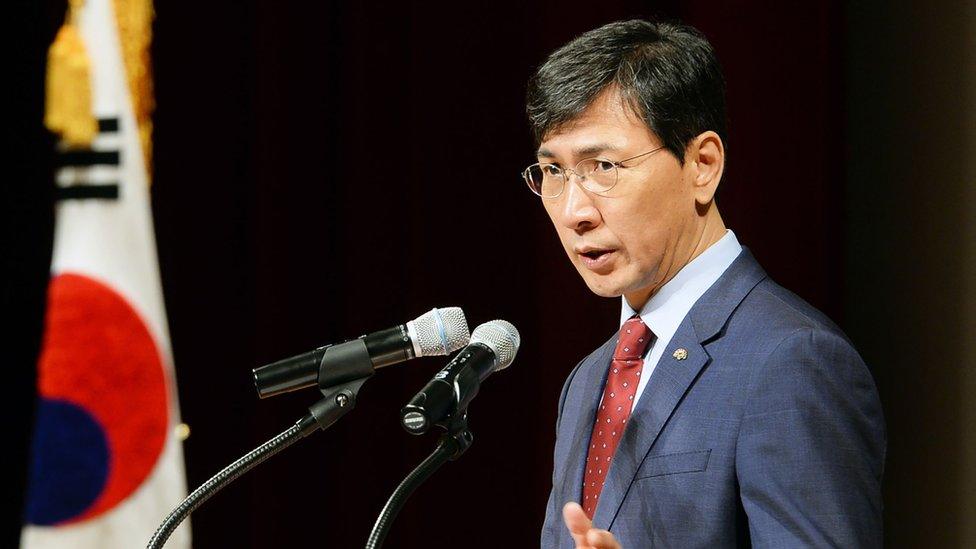
- Published9 March 2018
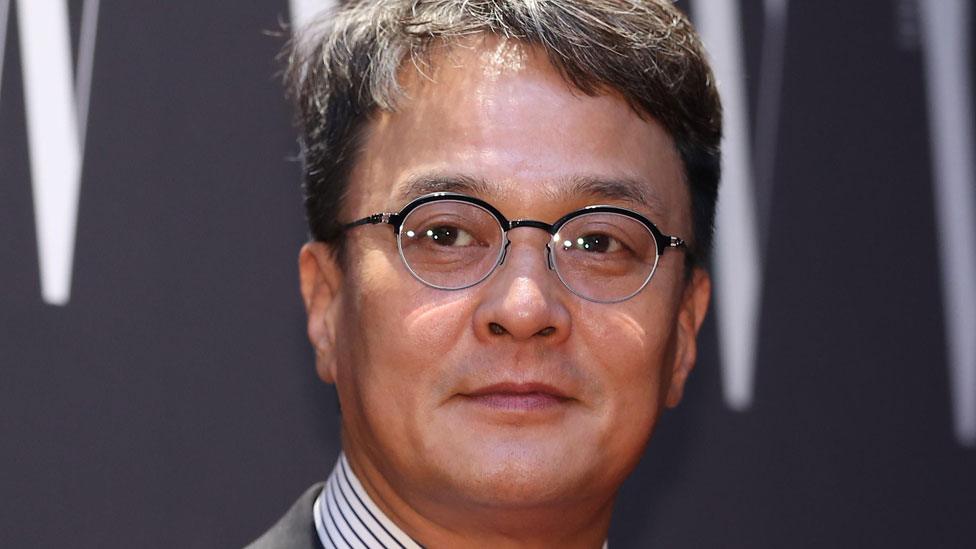
- Published6 January 2018
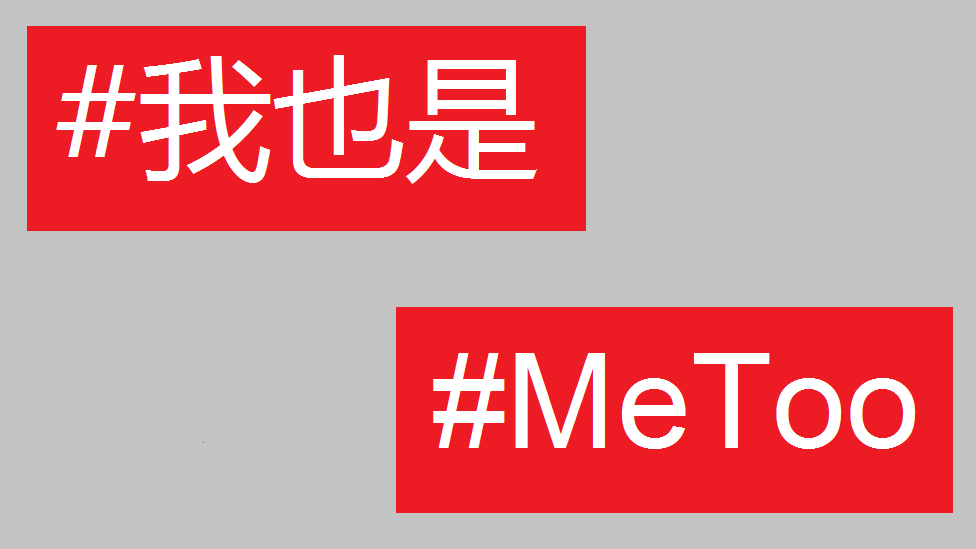
- Published12 January 2018
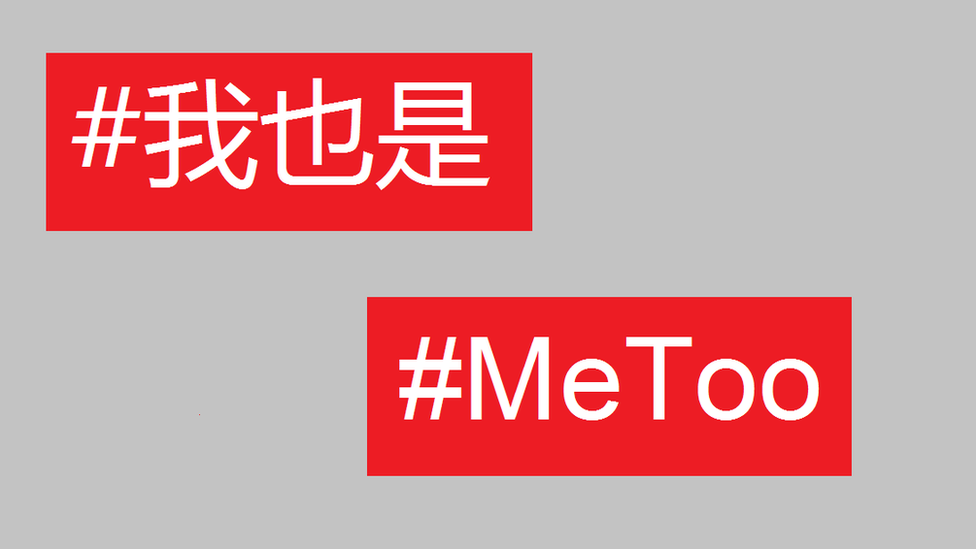
- Published1 December 2017
- Published16 October 2017
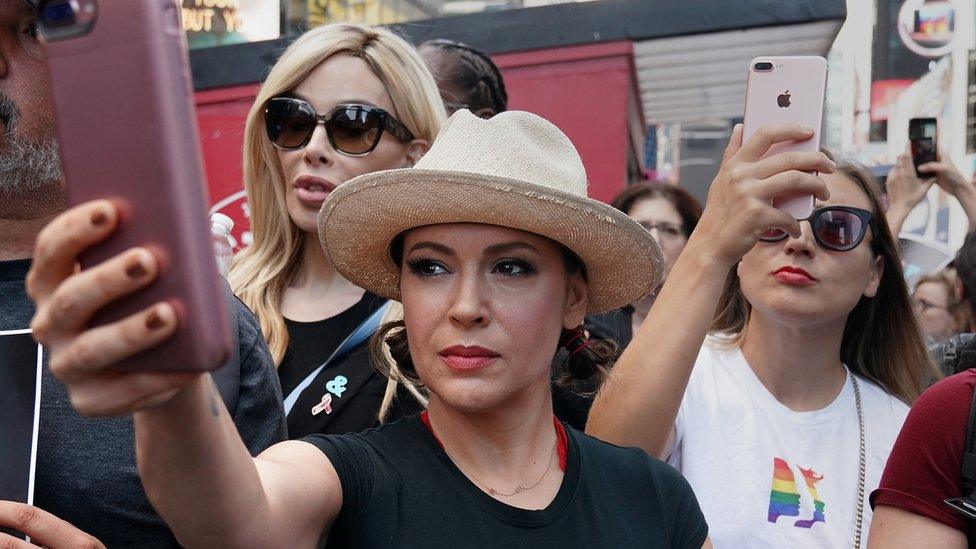
- Published13 February 2018
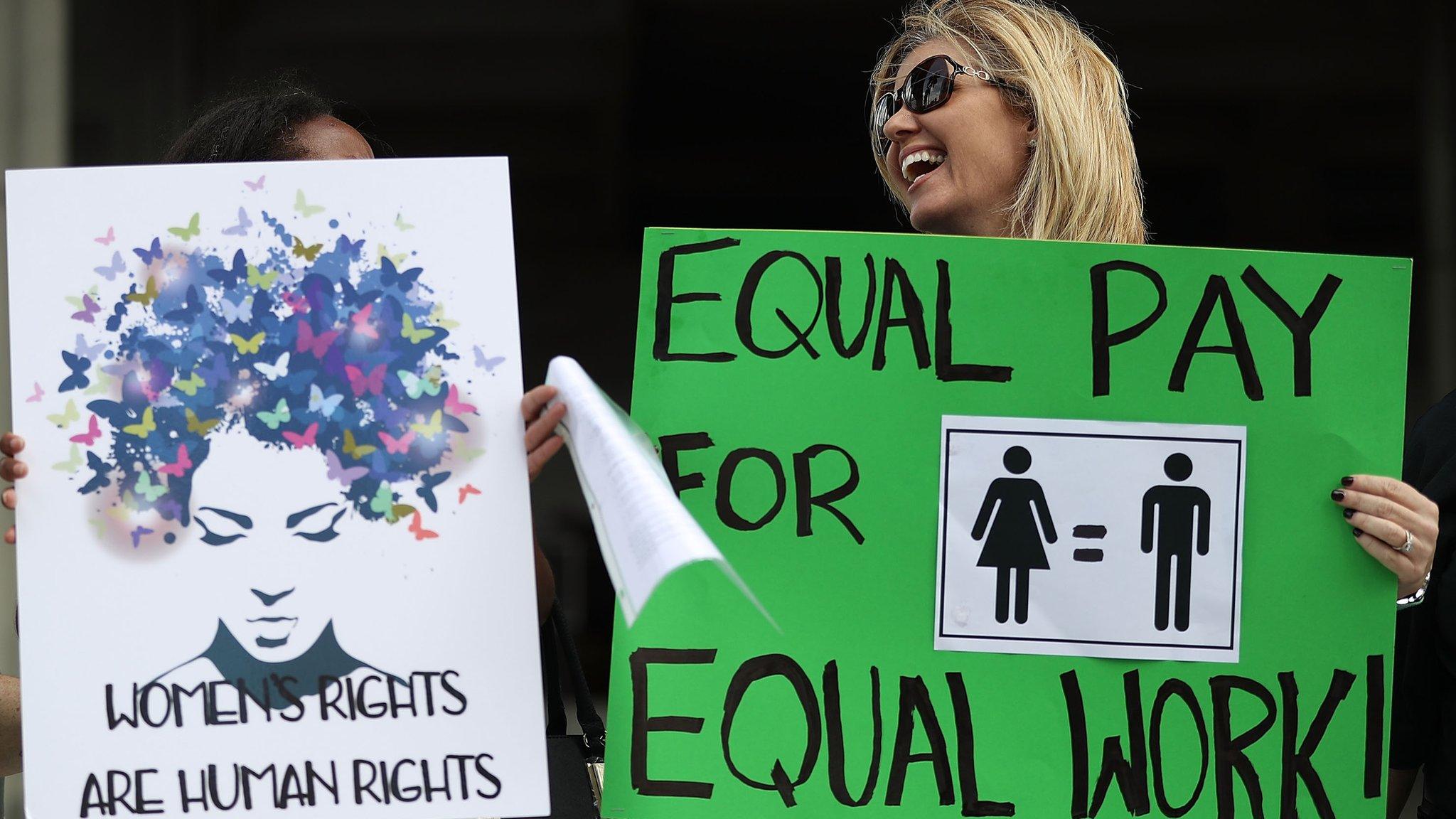
- Published23 August 2016
